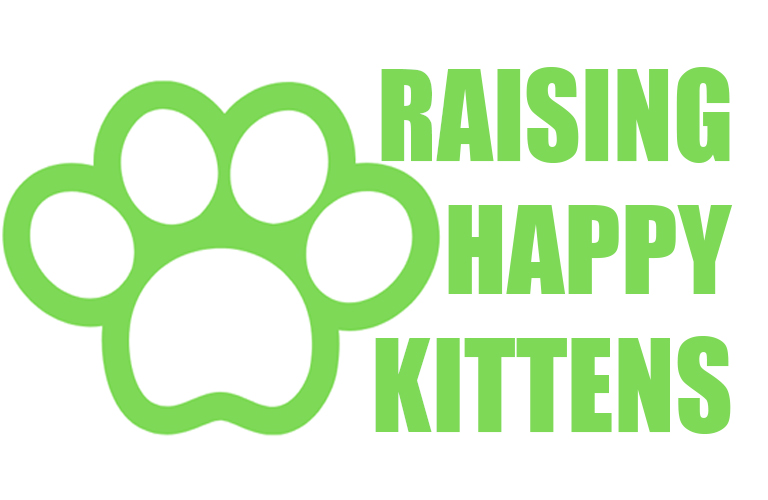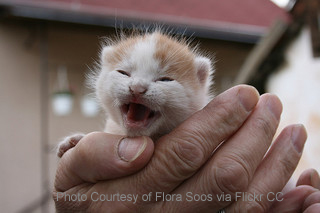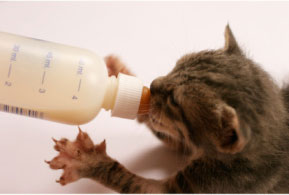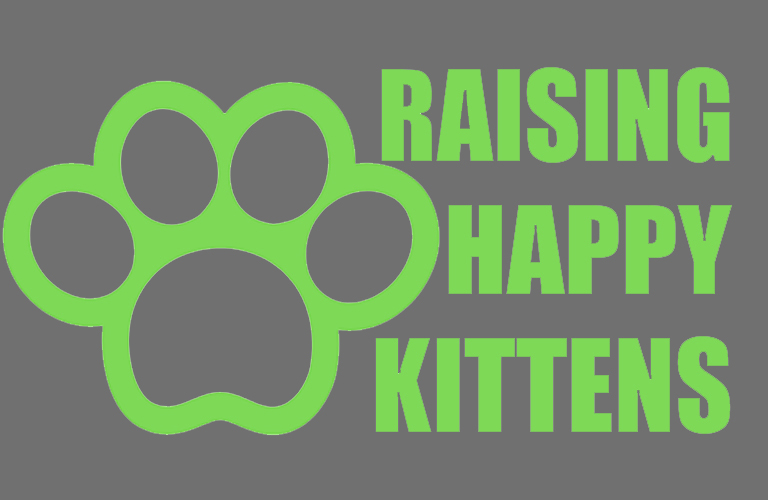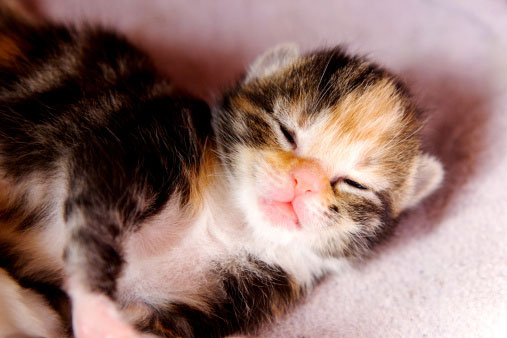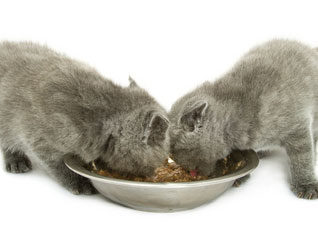The most immediate threat for new born kittens that have been abandoned or orphaned is not starvation, but exposure to the elements.
Since warmth is critical for survival, the first thing you must do upon rescuing them is bringing their bodies to room temperature, before you even begin hand feeding.
Have other pets at home? Ensure their safety by keeping the new born kittens away from them. You do not know if they may have a contagious disease, and you don’t want this to be given to your older dogs or cats.
How to Raise the New Born Kittens Body Temperature
Make sure you warm them slowly. Dehydration, shock and death can result from warming too quickly.
Ideally, you can place the kitten under your coat or sweater. The armpit makes a cozy, warm temporary nest as well.
Massage the kitten gently to restore blood circulation.
If you are rescuing an entire litter of new born kittens and cannot fit them all in your pockets, take turns rubbing each while keeping the others wrapped together in a blanket to help them conserve body heat.
Of course, the sooner you get them indoors the better.
Bringing the New Born Kittens Home
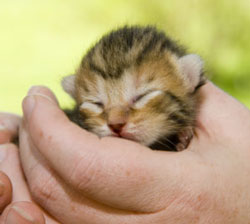 Once at home, get a small box or pet taxi ready.
Once at home, get a small box or pet taxi ready.
Wrap a hot water bottle in a towel and place it next to the new born kittens, always allowing plenty of room for them to crawl away if they get too hot.
Alternatively, you can place a heating pad under the bottom of the box on a low setting with a towel lining the inside of the box.
Again, the babies must be able to move away from the direct heat so they can maintain their body temperature.
The temperature inside the box must be maintained at 85 to 90 degrees during the first week of life.
Lower by 5 degrees each week until 70 degrees is reached, and maintain this temperature.
How to Reduce Body Temperature in New Born Kittens
Although cold weather is the most common cause of a kitten’s decline, those in warmer climates may face the opposite challenge of heat and sun exposure.
Living in the Southern California Desert for 15 years exposed me to many cases of kittens and puppies that had to be treated for dehydration and sun stroke.
As soon as possible, wrap the kitten in a cool, damp towel away from direct sunlight.
Don’t submerge a kitten in cold water: They could go into shock and die.
Keep rinsing the cloth in cool water and rubbing the kitten with it gently until he’s revived.
Contact your veterinarian as soon as possible–depending on the severity of dehydration the new born kittens may need to be given fluid injections or even a cold-water enema.
Feeding the New Born
Bottle feeding kittens is the most straightforward method of getting the new born to drink a milk replacer, but if they are weak or ill they may not have a good nursing reflex.
If this is the case with your new born kittens, tube feeding may be necessary.
It’s important you get a professional to show you how to insert the tube down his tiny throat and directly into the stomach.
The advantages of hand feeding a new born via stomach tube is that it only takes a couple of minutes to complete a feeding, no air is swallowed, and it ensures the proper amount of formula is given to each kitten.
